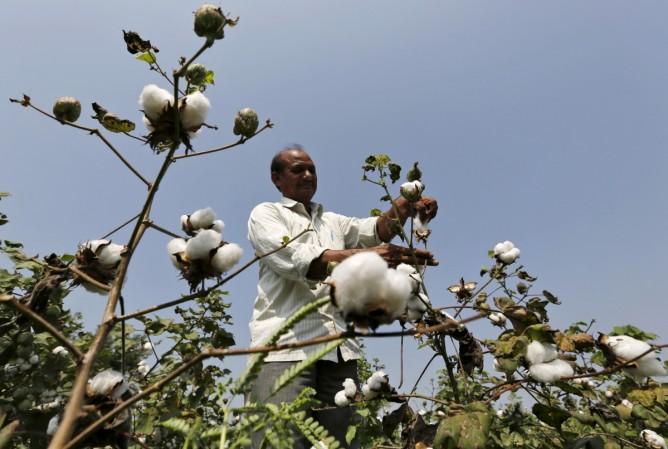
Global seeds major Monsanto has won arbitration proceedings against Nuziveedu Seeds Ltd (NSL), Reuters reported exclusively on Tuesday. Monsanto, which is owned by German drug maker Bayer AG, has been locked in a long-drawn royalty battle with Indian seed makers. "... Monsanto has received a favourable award from the arbitration panel in the proceedings against NSL and Prabhat", a Bayer spokesman told the agency in an e-mailed statement.
The terms of the arbitration decision are not revealed as both parties have to abide by secrecy conditions. However, according to Monsanto's calculations, NSL and its affiliates owed the Missouri-based company as much as $22.82 million. "The award is confidential and we will not be able to share any further details at this stage," the Bayer spokesman said. NSL reserves the right to appeal the verdict.
What's the case?
The dispute arises from Mahyco Monsanto Biotech's sale of genetically modified (GM) cotton seeds to around 40 Indian seed companies under license. These Indian companies sell the seeds in turn to retailers, letting Monsanto control a huge seed market in the largest producer of cotton in the world. Mahyco Monsanto Biotech (India) is a joint venture between Monsanto and Maharashtra Hybrid Seeds Co (Mahyco).
The dispute started in 2015 when Nuziveedu Seeds Ltd and its two affiliates stopped paying royalties to MMB. Their contention was that Monsanto did not enjoy patent protection on its GM cotton seeds under Indian laws. The Indian companies insisted that the norms had to be set by the Indian government if they were to make the payment of royalties, or 'trait fees'.
The role of GM technology in India's agriculture has had a controversial record. Genetically modified seeds have come in for sharp criticism, while the specific role played in its propagation by global seeds giant Monsanto has always been focus, with nationalist groups vehemently opposing both.

However, Monsanto won a major legal victory last month when the Supreme Court ruled that Monsanto can own patents on genetically-modified cotton seeds in India, setting aside a Delhi High Court verdict that said seeds, plants and animals can't be patented under Indian laws. "The division bench order has been overruled. It essentially means that the patent is in force," a Bayer spokesman in India said.
How Monsanto changed India's Cotton cultivation
Monsanto entered India in 2003, introducing lab altered seeds in the country for the first time. The arrival of pest resistant cotton plants changed the farming landscape in the county, which went on to become the world's biggest producer of the yarn in subsequent years. Cotton production boomed in the main cultivation belts in the country subsequently, powering India into the list of world's biggest cotton producers. As of now nearly 96 percent of cotton cultivating area in the country is under Bt cotton.
However, it has been argued that the output boom wasn't sustainable and hit a trough after five years of high yield. Other major downsides were that the seeds were far more expensive than the local varieties and that the seeds could not be reused. The farmers had to buy seeds from the makers in every farming cycle. Monsanto, which was selling Bt cotton seeds to practically the whole of India through its licensees, enjoyed a monopoly in this scenario.
Meanwhile, farmers and activists also levelled other charges against Bt cotton seeds. Farm lobbies say that BT cotton requires a huge amount of insecticides and pesticides to protect the crops. They also say that Bt cotton seeds give protection against only one pest, leaving it vulnerable to others. "After Maharashtra's last season experience, it can be safely concluded that the claims of the BT technology are invalid. The technology has shown signs of failure with the insects developing resistance to it. It is now necessary to either upgrade technology or declare it a failure to safeguard millions of poor farmers," Agriculture expert and ex-Commissioner of Agriculture, Sunil Kendrekar said. IANS. The Environmental Sciences Europe had also reveled in a study that there could be a link between Bt cotton and farmer suicide in India.

















